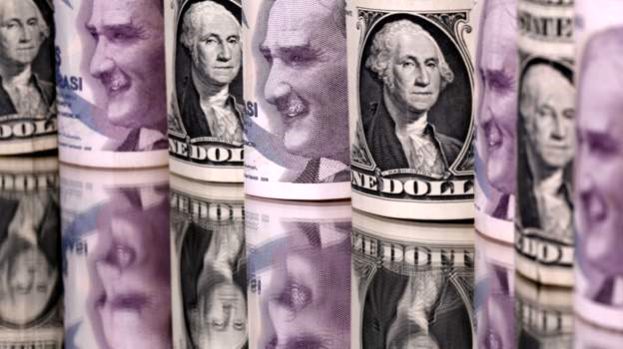As most of the Turkish public saw their savings and purchasing power melt away, 40-year-old Tuna Ak closely watched the machinations of the United States Federal Reserve and Turkey’s Central Bank.
He bought up thousands of dollars in October when the lira was at nine to the dollar and sold it all when it reached 15 in December, turning a hefty profit, just before the Central Bank made a series of moves to boost the Turkish currency.
“I am following the news,” said the resident of Kocaeli, a father-of-two and a self-described jack of all trades.
“It was a very high number so I knew there would be an intervention,” he told The Independent.
An economic downturn has heightened inflation, increased unemployment, and crushed the dreams of millions of Turks.
Russia’s war against Ukraine is set to worsen the crisis by causing a spike in global food and energy prices and reducing crucial eastern European tourism that has been a steady source of income for the travel sector.
But Turkey’s decline has also produced some financial winners, raising questions and suspicions about the country’s economic rollercoaster ride.
The privileged few have made a killing
“The banks were able to borrow from the central bank and give it out as credit, sometimes to large construction companies,” said Ercan Uygur, a professor of economics at the University of Cyprus.
“They borrowed before the inflation jumped and at low-interest rates. And now they’re selling their products at higher prices. They’ve made a large profit.”
The huge profits come at the expense of savers and those with fixed incomes, whose salaries and nest eggs lose value, as well as taxpayers who are left holding the bill for massive government deficits.
“In the case of unexpected inflation those who lend are the losers, and those who borrow are the winners,” said Mr Uygur.
But there are also suspicions that some close to the government of president Recep Tayyip Erdogan benefited from insider information, particularly around a 20 December intervention by the state that sent the lira suddenly careening upwards after it was sliding downward in value against the dollar and other major currencies for months.
Turkey’s opposition People’s Republican Party (CHP) has asked for a probe into the matter.
Rejected by Mr Erdogan’s Justice and Development Party, which controls parliament, the CHP has launched its own investigation.
“It’s obvious that some people made a lot of money, and we are investigating that,” Ahmet Unal Cevikoz, a CHP member of parliament, told The Independent.
In particular, many people were irked by remarks by the country’s finance minister Nureddin Nebati after 20 December, in which he admonished those who did not follow the government’s counsel.
Some interpreted the remarks to suggest that big businesses close to the government would prosper while those that kept their distance would lose out, “that the people who meet with them and do business with them are able to profit”, as one senior opposition figure – who asked not to be named – put it.
Defenders of the government insist the comments were misinterpreted, and that Mr Nebati was only seeking to bolster faith in Mr Erdogan and his deputies. But many observers remain unconvinced.
